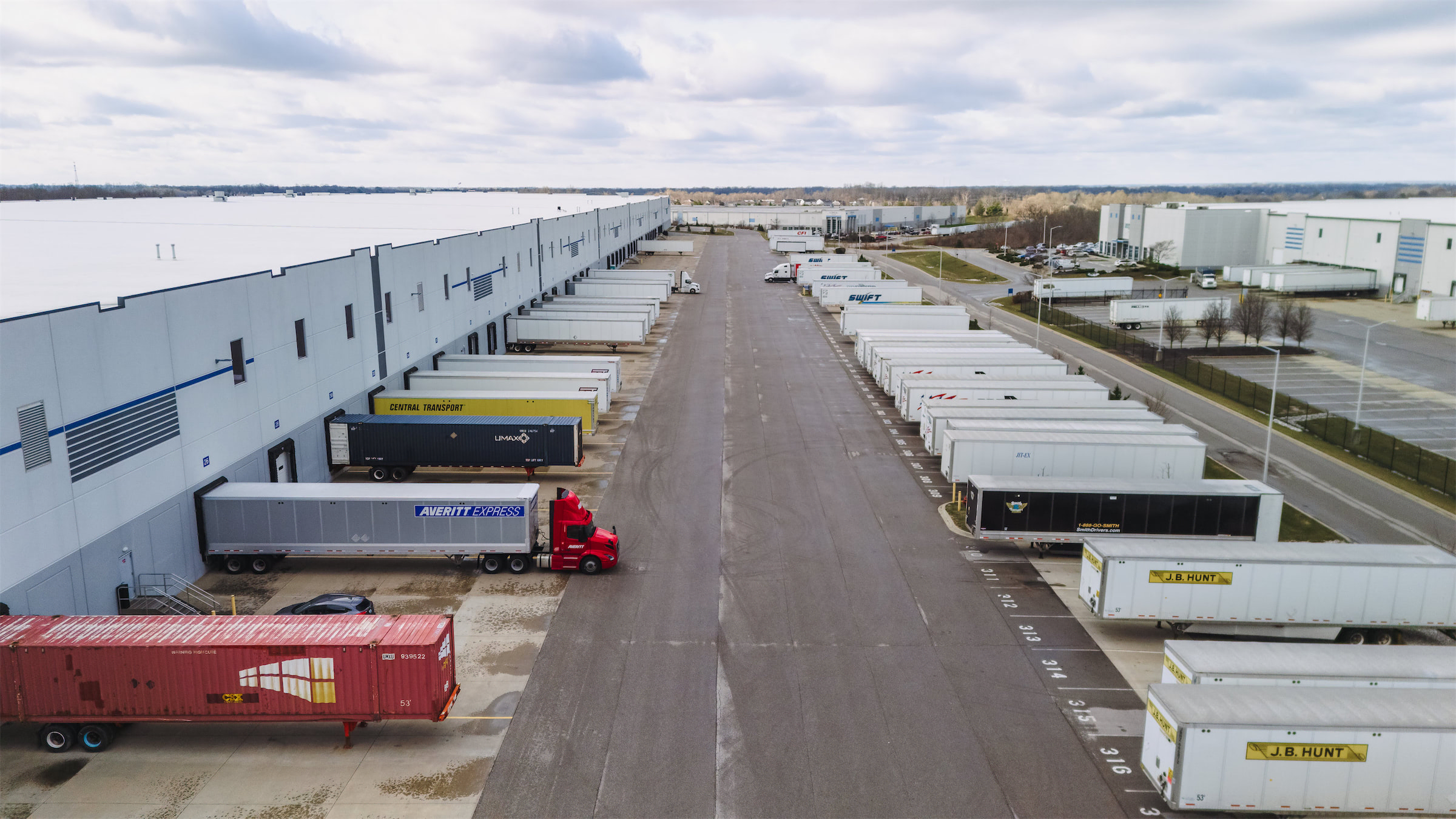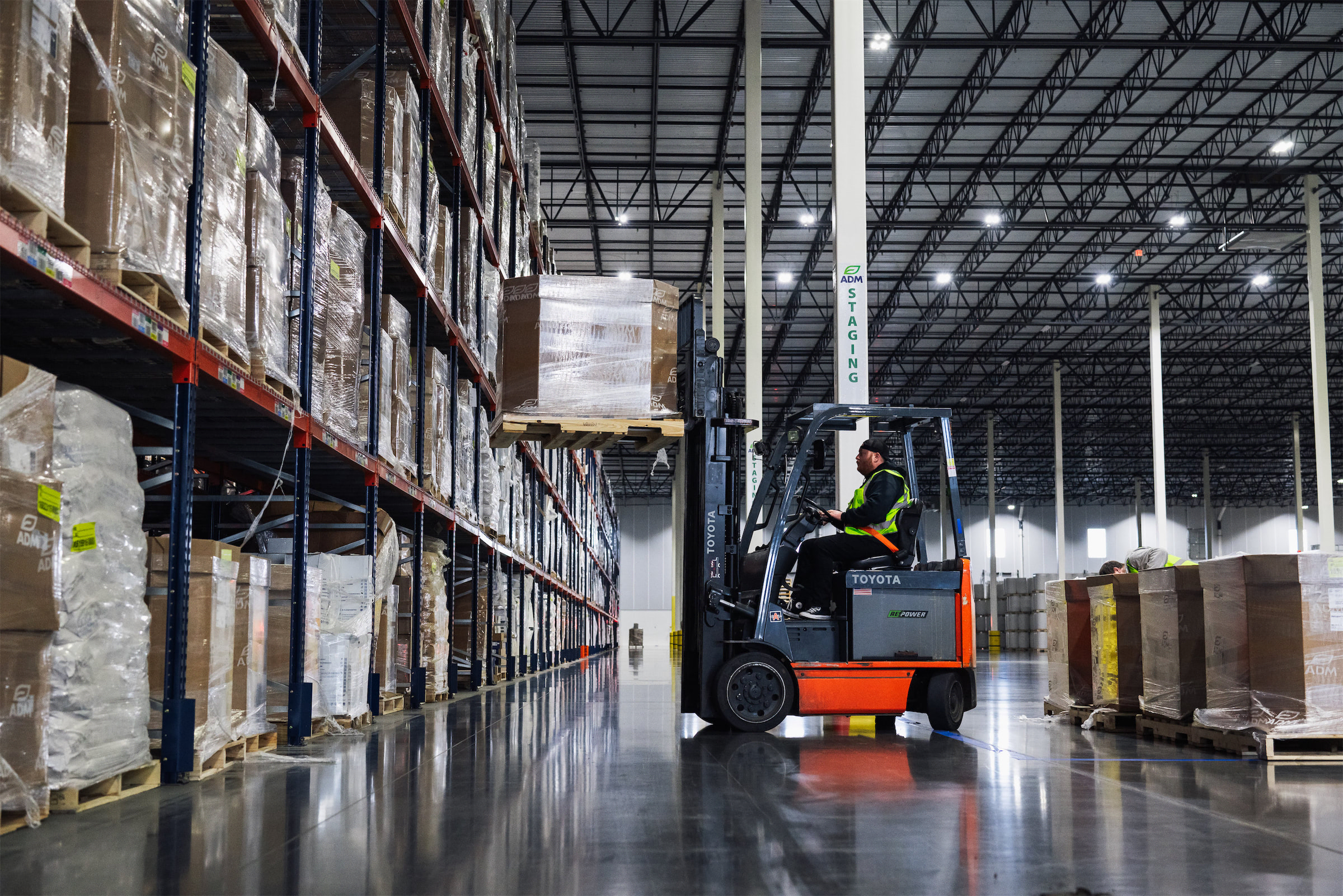FSMA Compliance in Third-Party Warehousing: What Food Manufacturers Must Know in 2025
.png)
The Food Safety Modernization Act fundamentally changed how food manufacturers approach supply chain management. No longer can companies simply hand off products to a warehouse and assume compliance—the FDA now holds manufacturers accountable for their entire supply chain, including third-party logistics partners.
The Food Safety Modernization Act fundamentally changed how food manufacturers approach supply chain management. No longer can companies simply hand off products to a warehouse and assume compliance—the FDA now holds manufacturers accountable for their entire supply chain, including third-party logistics partners. This shared responsibility model creates new complexities that require careful navigation.
For food manufacturers utilizing contract or public warehousing, FSMA compliance isn't optional—it's essential for business continuity. A single compliance failure at your 3PL can trigger FDA enforcement actions, mandatory recalls, and devastating reputational damage. The question isn't whether your warehouse partner needs to be FSMA compliant, but rather how to ensure their practices protect your brand and customers.
Understanding Shared FSMA Responsibilities
FSMA creates a framework where food safety responsibility extends throughout the supply chain. When partnering with a third-party warehouse like Commonwealth Inc., manufacturers must understand that compliance requires active collaboration, not passive delegation.
The Preventive Controls for Human Food rule requires facilities to implement comprehensive food safety plans. While your 3PL partner handles the physical storage, you remain responsible for verifying their compliance with your food safety requirements. This includes ensuring proper temperature controls, preventing cross-contamination, and maintaining detailed records that satisfy FDA requirements.
Critical FSMA Requirements for Warehouse Operations
Temperature control stands as perhaps the most visible FSMA requirement in warehousing. The Sanitary Transportation rule mandates that foods requiring temperature control for safety must be transported and stored at appropriate temperatures. Your temperature-controlled warehousing partner must maintain continuous monitoring systems, document temperature logs, and have protocols for addressing temperature excursions.
Allergen control presents another critical compliance area. FSMA requires facilities to prevent allergen cross-contact through proper storage segregation, cleaning protocols, and handling procedures. Your warehouse partner must understand your products' allergen profiles and implement appropriate controls to prevent contamination. This includes separate storage areas for allergen-containing products, dedicated handling equipment where necessary, and comprehensive staff training on allergen management.
Documentation and Traceability Requirements
FSMA's emphasis on verification and validation creates extensive documentation requirements. Your warehouse partner must maintain records demonstrating compliance with preventive controls, including temperature logs, cleaning and sanitation records, pest control documentation, and employee training records. These records must be readily available for FDA inspection, typically within 24 hours of request.
The proposed Food Traceability Rule adds another layer of complexity, requiring enhanced recordkeeping for certain foods. Your logistics partner must be prepared to capture and maintain Key Data Elements (KDEs) at Critical Tracking Events (CTEs) throughout the storage and distribution process. This includes lot codes, quantities, locations, and dates that enable rapid tracing during potential contamination events.
Selecting an FSMA-Compliant Warehouse Partner
Evaluating potential warehouse partners for FSMA compliance requires thorough due diligence. Start by requesting documentation of their food safety programs, including written procedures for temperature control, allergen management, and sanitation. Verify that their facilities maintain appropriate food-grade certifications and that staff receive regular food safety training.
Physical facility assessments prove invaluable. During site visits, evaluate storage conditions, equipment maintenance, and operational practices. Look for clear segregation of different product types, robust pest control measures, and well-maintained temperature control systems. Commonwealth's facilities offer tours that allow potential clients to assess food safety practices firsthand.
Best Practices for Managing 3PL FSMA Compliance
Successful FSMA compliance with third-party warehouses requires ongoing management, not just initial selection. Establish clear food safety expectations in your contract warehousing agreements, including specific temperature requirements, allergen handling protocols, and documentation standards.
Implement regular auditing programs to verify ongoing compliance. This might include quarterly facility inspections, monthly documentation reviews, and annual comprehensive audits. Consider using third-party auditors to provide objective assessments of your warehouse partner's food safety practices.
Technology's Role in FSMA Compliance
Modern warehouse management systems play a crucial role in FSMA compliance. Advanced WMS solutions enable real-time temperature monitoring, automated lot tracking, and comprehensive documentation management. These systems can generate the reports and records required for FDA inspections while providing visibility into your products' handling throughout the storage process.
Integration capabilities matter as well. Your warehouse partner's systems should integrate with your food safety management systems, enabling seamless data exchange and comprehensive supply chain visibility. This integration becomes particularly important for traceability requirements, where rapid data retrieval can mean the difference between a limited withdrawal and a massive recall.
Preparing for FDA Inspections
FDA inspections of third-party warehouses are increasingly common. Your warehouse partner must be prepared to demonstrate compliance during both announced and unannounced inspections. This requires maintaining inspection-ready documentation, training staff on inspection protocols, and having procedures for correcting identified deficiencies.
Commonwealth's experienced team understands the importance of maintaining inspection readiness. Regular internal audits, comprehensive staff training, and robust documentation systems ensure facilities can confidently handle regulatory inspections while protecting client interests.
The Cost of Non-Compliance
FSMA non-compliance carries severe consequences beyond regulatory penalties. FDA warning letters become public record, damaging your brand reputation. Mandatory recalls can cost millions in lost product, logistics expenses, and legal fees. Perhaps most damaging, lost consumer trust can take years to rebuild.
Investing in a compliant warehouse partner represents risk management, not just regulatory compliance. The cost of partnering with an experienced, FSMA-compliant 3PL pales in comparison to the potential costs of compliance failures.
Future FSMA Developments
FSMA implementation continues to evolve. The FDA regularly updates guidance documents, clarifying expectations and requirements. The Food Traceability Rule, when finalized, will create new recordkeeping requirements for designated foods. Smart manufacturers are preparing now by selecting warehouse partners with the systems and expertise to adapt to changing requirements.
Commonwealth Inc. stays current with evolving regulations through industry associations, regulatory monitoring, and ongoing staff training. This proactive approach ensures clients remain compliant as requirements evolve.
Conclusion
FSMA compliance in third-party warehousing requires careful partner selection, ongoing management, and continuous improvement. Food manufacturers cannot delegate their compliance responsibilities—they must actively manage their warehouse relationships to ensure food safety throughout the supply chain.
Success requires selecting partners who understand FSMA requirements, maintain robust food safety programs, and demonstrate commitment to compliance through investments in facilities, technology, and training. The right warehouse partner becomes an extension of your food safety team, protecting your products, your customers, and your brand.
Ready to ensure FSMA compliance in your warehousing operations? Contact Commonwealth Inc. to discuss how our food-grade facilities and experienced team can support your food safety requirements while optimizing your supply chain efficiency.
Frequently Asked Questions
What FSMA rules apply to third-party warehouses?
Third-party warehouses must comply with several FSMA rules including the Preventive Controls for Human Food rule (if they handle food), the Sanitary Transportation rule for temperature-controlled products, and upcoming Traceability requirements for designated foods. The specific requirements depend on the types of food products stored and handled.
How often should we audit our 3PL for FSMA compliance?
Best practices suggest conducting comprehensive annual audits with quarterly facility inspections and monthly documentation reviews. The frequency may increase based on risk factors like product sensitivity, previous audit findings, or regulatory changes. Many manufacturers also conduct unannounced spot checks to verify ongoing compliance.
Can our 3PL's FSMA violations impact our company?
Yes, significantly. The FDA holds manufacturers responsible for their entire supply chain. Violations at your 3PL can result in warning letters, import alerts, or enforcement actions against your company. You may also face product recalls, lawsuits, and reputational damage from food safety incidents at your warehouse partner.
What certifications should an FSMA-compliant warehouse have?
While FSMA doesn't require specific certifications, look for warehouses with SQF (Safe Quality Food) certification, BRC (British Retail Consortium) certification, or other GFSI-recognized schemes. These certifications demonstrate commitment to food safety beyond basic regulatory compliance.
How do we verify our 3PL's temperature control compliance?
Request continuous temperature monitoring data, review their temperature excursion protocols, and verify equipment calibration records. During facility visits, check temperature displays, observe door-opening practices, and review backup power systems. Ensure they can provide complete temperature documentation for your products' entire storage period.
What should our warehouse services agreement include for FSMA compliance?
Include specific food safety requirements, temperature parameters, allergen handling protocols, documentation and reporting requirements, audit rights and schedules, corrective action procedures, and recall support obligations. Clearly define responsibilities and include provisions for regulatory changes.
How can technology help with FSMA compliance in warehousing?
Modern WMS systems provide real-time temperature monitoring, automated lot tracking, electronic documentation management, and rapid traceability reporting. Look for partners with systems that integrate with your food safety management platforms and can generate FDA-required reports quickly.
What happens during an FDA inspection of our 3PL?
FDA inspectors will review food safety plans, examine documentation and records, observe operations and practices, check facility conditions and equipment, interview personnel about procedures, and collect samples if necessary. Your 3PL should immediately notify you of any inspection and provide copies of all FDA correspondence.
Recent blogs

5 Signs You've Outgrown Your Current Warehouse Solution
It happens gradually, then suddenly. Your once-adequate warehouse operation starts showing stress fractures—orders ship late, inventory accuracy declines, costs creep upward. Here are some signs it's time for a change.

Converting Fixed Costs to Variable: The Financial Impact of Outsourced Warehousing
The holy grail of financial management is achieving perfect cost variability; expenses that scale precisely with revenue. Discover how converting to variable costs fundamentally changes your financial risk profile.

Peak Season Playbook: Scaling Warehouse Operations
Every operations manager knows the peak season paradox: you need double the warehouse capacity and triple the labor force for three months, but you can't afford to maintain those resources year-round. This guide reveals proven strategies for scaling efficiently during demand spikes while controlling costs.
Arrange a visit
See the Commonwealth difference in action
We believe the best way to understand our capabilities is to experience them firsthand. We invite you to tour one of our facilities, meet our team, and discover how Commonwealth can optimize your logistics operations. Let us show you why so many businesses trust us with their supply chain needs.
Let’s optimize your supply chain together
At Commonwealth, we're committed to providing tailored logistics solutions that meet your unique business needs. Whether you have a question about our services, want to request a quote, or are ready to schedule a facility tour, our team is here to help.